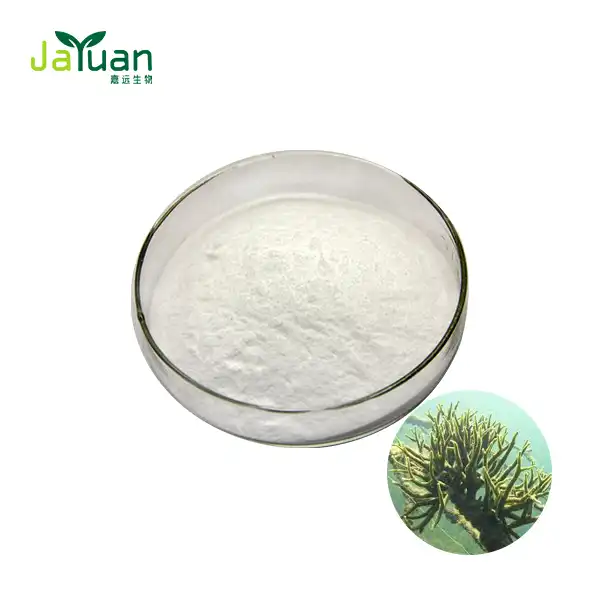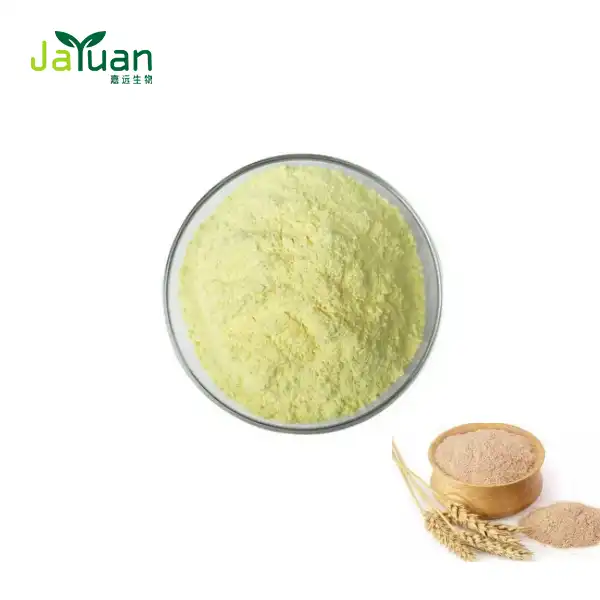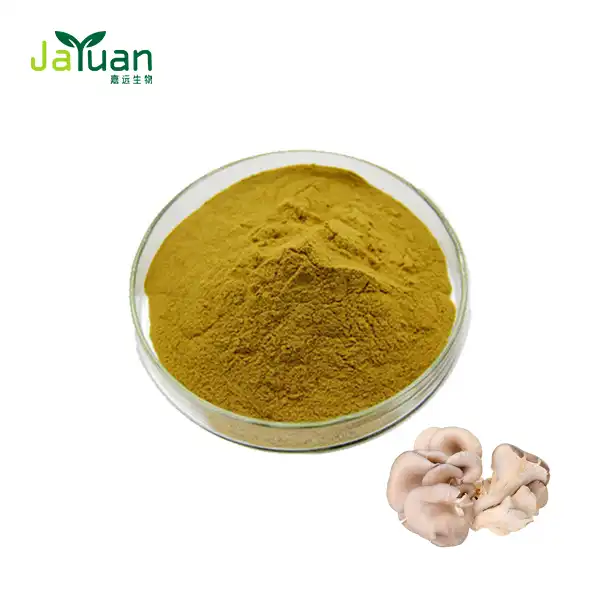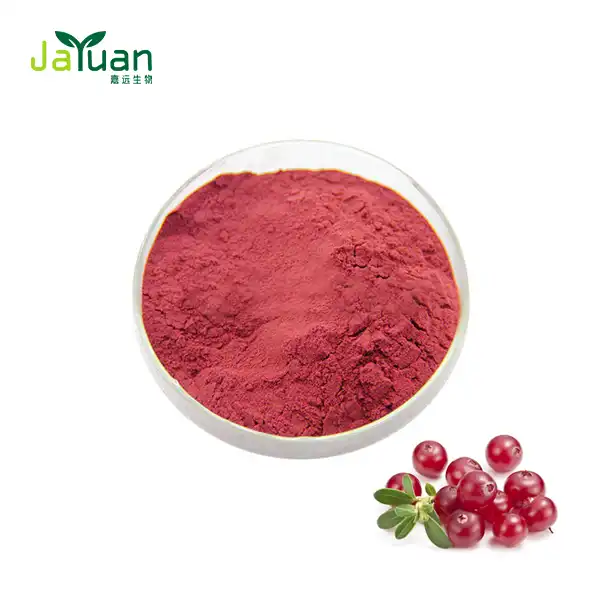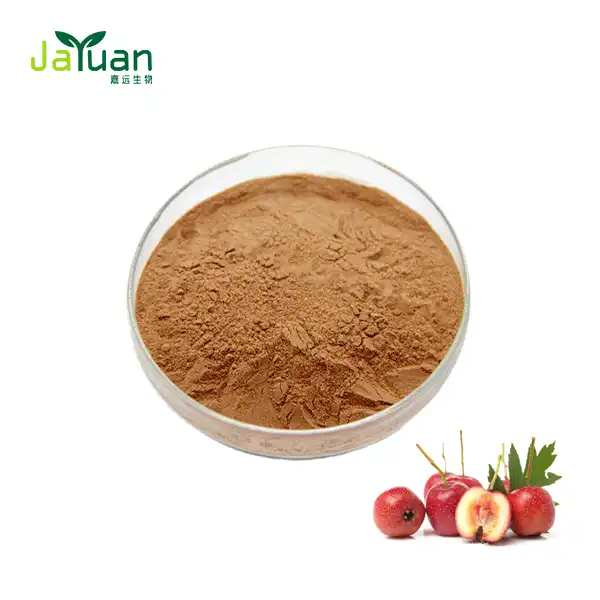Does Houttuynia Cordata Extract interact with other medications or supplements?
Houttuynia Cordata Extract, derived from the heart-shaped leaves of the Houttuynia Cordata plant, is celebrated for its purported health benefits. Known for its potential antimicrobial, anti-inflammatory, and immune-boosting properties, this extract is gaining traction among pharmaceutical companies, nutraceutical manufacturers, and herbal medicine producers. While its benefits are well-documented, there is growing interest in whether this extract interacts with medications or supplements. Understanding these potential interactions is critical, especially for those managing chronic conditions or taking dietary supplements regularly.
Houttuynia Cordata Extract may interact with certain medications and supplements due to its bioactive compounds, which can influence drug absorption, metabolism, or effectiveness. For individuals considering integrating Houttuynia Cordata Extract Powder into their routine, understanding these interactions can help maximize benefits while minimizing risks.
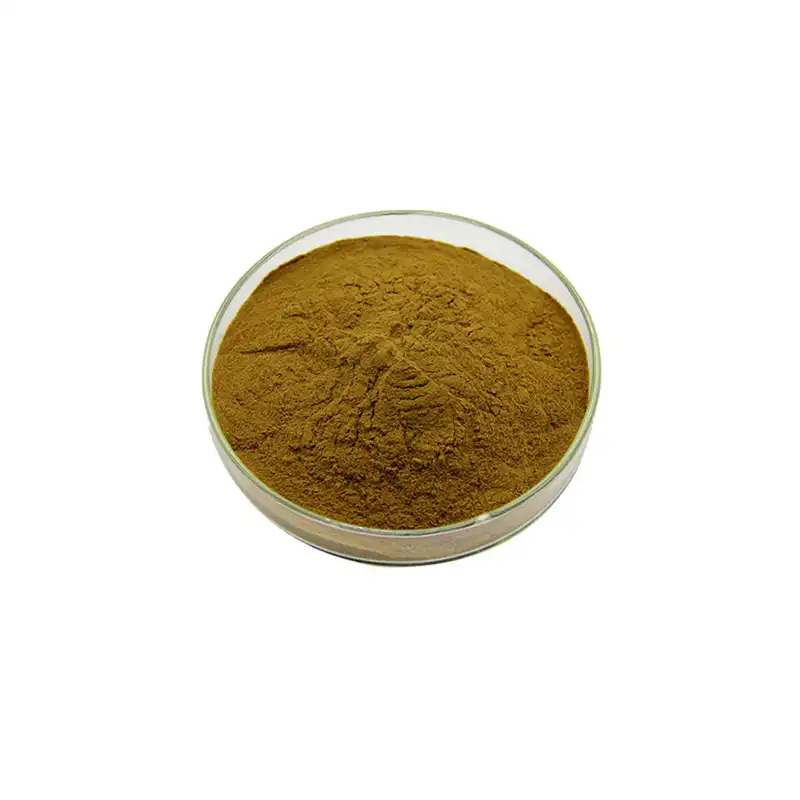
Can Houttuynia Cordata Extract Interfere with Blood Pressure Medications?
Houttuynia Cordata Extract is known to have diuretic properties, which may influence blood pressure regulation. This raises questions about its compatibility with medications used to manage hypertension.
Influence on Blood Pressure Levels
Houttuynia Cordata, commonly known as fish mint, contains several bioactive compounds such as flavonoids and polysaccharides, which may have a mild hypotensive effect. These compounds can promote diuresis (increased urine production) and vasodilation (widening of blood vessels), both of which may help in reducing blood pressure. While this can be beneficial for individuals with high blood pressure, there is a potential risk for those already taking antihypertensive medications. The combined effects could lead to an excessive drop in blood pressure, resulting in hypotension. People using medications such as ACE inhibitors, beta-blockers, or calcium channel blockers should consult their healthcare provider before incorporating Houttuynia Cordata Extract into their regimen to avoid potential adverse interactions. It is important to consider individual health conditions and medication regimens when using herbal supplements.

Implications for Combination Therapies
The use of Houttuynia Cordata extract may affect electrolyte balance, particularly potassium levels, which can present challenges for individuals on certain medications. Some antihypertensive drugs, like diuretics, can already influence potassium levels by increasing its excretion or retention in the body. When combined with Houttuynia Cordata, which may also impact electrolyte levels, these effects could be amplified, leading to either hypokalemia (low potassium) or hyperkalemia (high potassium). This imbalance can have serious health implications. Therefore, it’s important to regularly monitor potassium levels and consult with a healthcare provider for potential adjustments to medication or supplementation.
Does Houttuynia Cordata Extract Affect the Absorption of Other Supplements?
Houttuynia Cordata Extract Powder contains bioactive compounds that may interact with the gastrointestinal system, influencing the absorption of other supplements.
Impact on Nutrient Bioavailability
The polysaccharides found in Houttuynia Cordata extract have been investigated for their ability to bind with certain essential minerals, such as calcium and iron, in the digestive system. This binding can potentially interfere with the absorption of these minerals, especially when the extract is consumed in large quantities or alongside mineral supplements. As a result, individuals who rely on multivitamins or mineral-rich diets may experience reduced mineral absorption. To minimize this risk, it is advisable to space out the intake of Houttuynia Cordata extract and mineral supplements, ensuring they are not taken simultaneously. This approach can help maintain optimal nutrient absorption and avoid potential deficiencies.
Compatibility with Herbal Supplements
When Houttuynia Cordata extract is combined with other herbal supplements, such as ginseng or turmeric, which are known for their potent bioactive compounds, there is a potential for both synergistic and antagonistic interactions. Synergistic effects could enhance the overall therapeutic impact, while antagonistic interactions may reduce the effectiveness of one or both substances. Therefore, it is crucial to understand the pharmacodynamics of each herb and how they interact in the body to avoid unintended side effects or diminished efficacy. This awareness helps ensure safe and effective use of herbal supplements.
What Are the Potential Side Effects of Combining Houttuynia Cordata with Antibiotics?
Given its antimicrobial properties, Houttuynia Cordata Extract is sometimes considered as a complementary therapy to antibiotics. However, combining it with these medications warrants caution.
Enhanced or Diminished Efficacy
Houttuynia Cordata is known for its antibacterial properties, which could potentially enhance the effectiveness of certain antibiotics, such as macrolides or penicillins, by supporting the eradication of bacterial infections. The extract's antimicrobial effects may complement the action of these antibiotics, making treatment more effective. However, if used improperly or in excess, Houttuynia Cordata could interfere with antibiotic action, potentially reducing their effectiveness. In some cases, overuse or inappropriate combinations may also contribute to the development of antibiotic resistance. Therefore, it is important to use the extract judiciously and under the guidance of a healthcare provider to avoid these risks and ensure optimal therapeutic outcomes.
Risks of Adverse Reactions
Combining Houttuynia Cordata extract with antibiotics may increase the risk of gastrointestinal side effects, including nausea, diarrhea, and upset stomach. This could be due to the extract's impact on gut flora or its ability to influence digestive processes. Furthermore, Houttuynia Cordata has the potential to alter liver enzyme activity, which plays a key role in metabolizing many antibiotics. As a result, this interaction might change the way antibiotics are processed in the body, potentially leading to an increased risk of side effects or even toxicity. To ensure safe and effective use, it is essential to consult with a healthcare provider to determine the appropriate dosages and combinations of treatments.
Comparing Houttuynia Cordata Extract with Other Natural Supplements
Compared to other plant-based extracts, such as echinacea or elderberry, Houttuynia Cordata Extract offers unique benefits due to its broad antimicrobial activity and immune-modulating properties. However, it also poses unique interaction risks, particularly with medications that affect the cardiovascular or gastrointestinal systems. Unlike some natural supplements that have well-established safety profiles, Houttuynia Cordata requires careful consideration and consultation with healthcare professionals before use.
Conclusion
Houttuynia Cordata Extract offers promising health benefits, but understanding its interactions with medications and supplements is essential for safe and effective use. Whether considering its potential impact on blood pressure medications, its influence on supplement absorption, or its compatibility with antibiotics, individuals should seek guidance from healthcare professionals. By doing so, users can harness its benefits while minimizing risks.
For more information about our Houttuynia Cordata Extract Powder and other plant-based products, feel free to contact us at sales@jayuanbio.com.
References
1. Detailed pharmacological studies on Houttuynia Cordata and its bioactive components.
2. Clinical reviews on the interaction of natural supplements with antihypertensive medications.
3. Research on polysaccharides and their role in mineral bioavailability.
4. Comprehensive analysis of antimicrobial natural extracts and their synergy with antibiotics.

